The following is from the July 5th, 2020 edition of the SF Chronicle. Jane Morrison was Camilla’s aunt.
John King
July 5, 2020 | Updated: July 5, 2020 11:08 p.m.
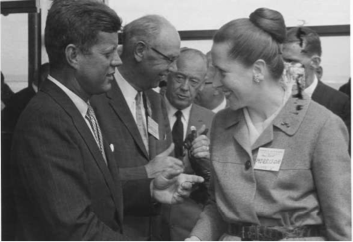
In 1960, Jane Morrison toured Northern California to organize Democratic female voters for presidential candidate John F. Kennedy.
Jane Morrison, a beatific and diligent figure in San Francisco politics for a half-century, died Saturday at her home on the east slope of Mount Sutro. She was 100.
The onetime radio executive held countless fundraisers for progressive candidates and causes at her home near Golden Gate Park, as well as serving on numerous advisory committees related to social justice and the environment. But in a city where the political scene can be needlessly pugnacious, the Oklahoma native had a knack for making friends, not enemies.
“Jane had a wide network of people who knew her, and they would relax in her presence,” recalled Sue Hestor, an attorney and frequent development critic whose friendship with Morrison dated to 1969. “She would talk about issues, but not in a catty way about people.”
As early as 1960, Morrison socialized with then-presidential candidate John Kennedy at a campaign function in her role as women’s chair of the California Democratic Party. She later hosted events for such emerging local candidates as Nancy Pelosi, Willie Brown and Barbara Boxer, and spent more than a decade on the city’s Human Services Commission.
Morrison also appeared on local ballots herself, several times winning a seat on the Democratic County Central Committee. The breadth of her connections can be seen in the list of endorsers from her run in 2002 — everyone from such establishment bastions as Dianne Feinstein and Pelosi to the most left-leaning members of the San Francisco Board of Supervisors.
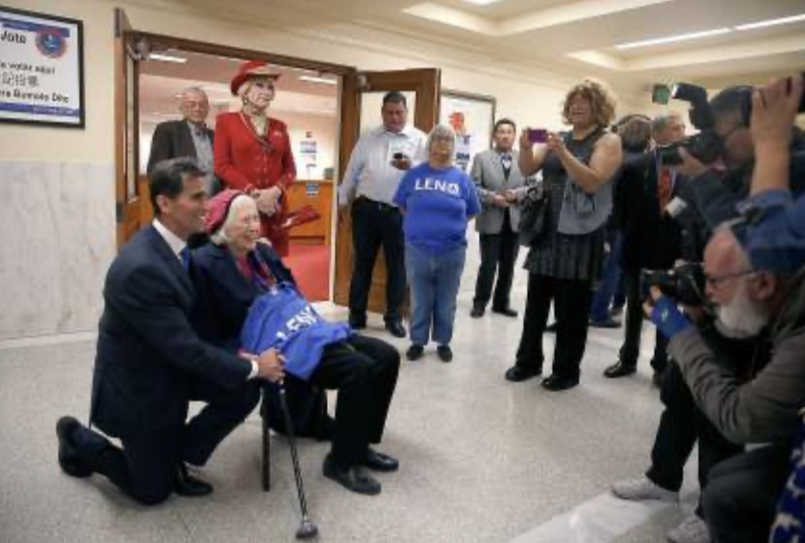
Former San Francisco supervisor and state Sen. Mark Leno (left) poses with Jane Morrison in 2017, as he confirmed his intent to run for mayor.
Democratic politicians of all generations knocked on Jane “Everyone wanted her on their (political) slate, because she was so well-liked,” said Jennifer Clary, president of the environmental group San Francisco Tomorrow. She and Morrison joined the group’s board in 1992 and remained close from then on.
Political people also liked Morrison because she knew the basics of organizing — how to find people to spend a day licking stamps and stapling election fliers, or making sure that gatherings went smoothly with good food and drink close at hand.
“She would tell me at first that when she hit 80, she was going to retire and just go to lunch. That never happened,” Clary laughed. “She had a stable of volunteers and the most amazing energy. It wasn’t unusual for me to get six to 10 messages in a day when she was putting something together.”
When The Chronicle profiled Morrison in 2011, then-Sen. Barbara Boxer hailed her as a “grande dame of San Francisco politics,” low- profile but essential. Morrison herself attributed her longevity to habits learned on the Oklahoma farm where she grew up in the 1920s: no alcohol, no tobacco, but three glasses of milk every day and “lots of vegetables. That’s all we had back then.” Born Jane Schneider, and one of four children, she was only 3 when her father left the family. Her mother raised the children on her own, determined to steer them toward a better life, and the youngest daughter responded by heading to Oklahoma A&M College, now Oklahoma State University, where she earned a journalism degree. During World War II she became a reporter for the Associated Press. After five years at the AP bureau in Kansas City, the fledgling reporter met and soon married Jack Morrison, a Navy officer. The couple moved to San Francisco in 1952.
Jack worked for The Chronicle as a reporter before running in 1961 for the Board of Supervisors, where he served two terms emphasizing neighborhood and environmental issues such as preventing high-rise buildings from spreading to Telegraph Hill and the waterfront. Jane became the public affairs director at radio station KNBR, where she defined her job to include mentoring young women and encouraging them to push forward in broadcasting.
Her other, unpaid job — or crusade — was the advocacy of Democratic candidates and liberal local political causes. This is how she crossed paths with Kennedy in a suite at the Fairmont Hotel, part of a fundraiser that included drinks with Frank Sinatra and the chance for guests to mingle with the candidate’s brothers, Robert and Ted. The political events that Jane Morrison would host after her husband Jack’s death in 1991 weren’t as lavish as the Fairmont soiree. But they attracted an ever-shifting collection of progressive activists and political aspirants — modestly priced affairs that were ideal for getting people excited about whatever campaign might lie ahead.
“I went to so many fundraisers at her house, for so many candidates and so many ballot measures,” said Tim Redmond, longtime reporter for the now-defunct Bay Guardian alternative weekly who now edits the nonprofit journalism website 48 Hills. “People could call her bossy, but she was never mean-spirited and she would never say anything nasty in public.”
Morrison had dementia in the final years, but remained in her home. There was around-the-clock care arranged by Gimmy Park Li, whom the childless Morrisons looked on as their daughter, as well as visits from her friends and neighbors.
For her 100th birthday in April, friends assembled an hour-long video tribute to Morrison. It included affectionate testimonies from family members still in Oklahoma as well as local political luminaries up to and including Pelosi, now Speaker of the United States House of Representatives.
“Equality for all, that’s what you’ve been about,” Pelosi said in the video. “We’ve all learned so much from you.”
John King is a San Francisco Chronicle staff writer.
Email: jking@sfchronicle.com
Twitter: @JohnKingSFChron
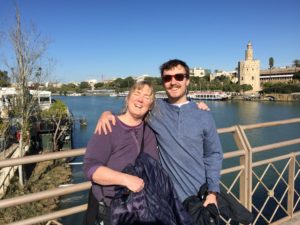
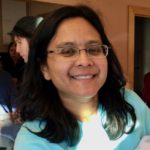
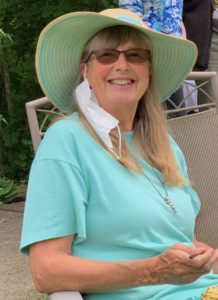
Recent Comments